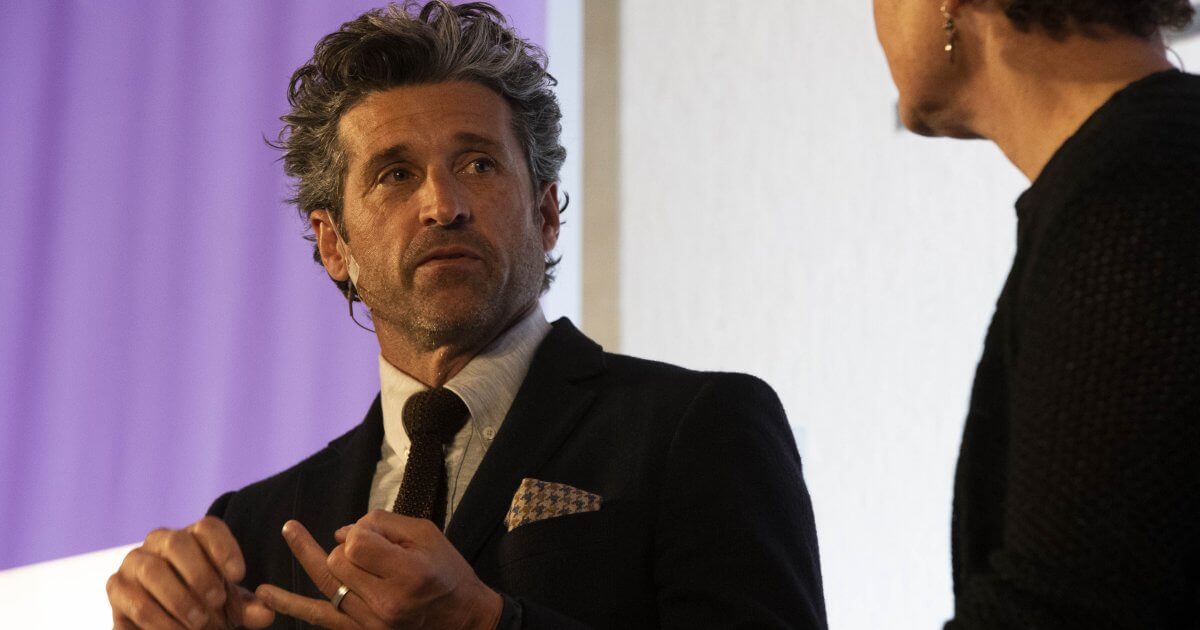Actor Patrick Dempsey had attendees at the People v. Cancer conference in New York City, hosted by The Atlantic in collaboration with SurvivorNet, in tears when he said that the most important thing his mom, who passed away from ovarian cancer, gave him before she died were stories about her life.
“Tell [your family] about your life,” Dempsey urged. Getting choked up he admitted the memory “brings up a lot for me. You want to know about your mom, and your kids want to know about your journey and your childhood. And they want to clear the table before [you] go.”
Read MoreThe Dempsey Center
Inspired by his mother, Dempsey founded the Dempsey Center in 2008. The supportive cancer facility in Maine offers free quality-of-life care to patients, family members and caregivers. Services range from massage and acupuncture to counseling services and bereavement groups. Located in Lewiston, Dempsey’s hometown, and South Portland, it treats some 2,500 patients a year.
The goal, Dempsey said, is a holistic approach to help all those involved in the diagnosis. “We just wanted to really serve the community,” he said. “That was the intention.”
The Center’s Mentorship Program
His mom, Dempsey said, found mentoring at the center to be helpful with her own treatment. “It was very healing for her,” said Dempsey, who along with Dempsey Center Executive Director Wendy Tardif was interviewed on stage by WNYC’s Alison Stewart.
The center’s mentorship program pairs those recently diagnosed with cancer with people who have gone or are going through the journey. “This allows [the mentors] to share that experience with a newly diagnosed cancer patient, and help them through some of the questions they might have,” Tardif said.

In general, Tardif said, it’s gratifying to see how the center has helped those in need. Some have told her “what a difference [the center] made in their lives, especially with how it’s helped them adjust to their diagnosis.”
Dempsey said that often the hard part is that first step into the center, but by the time they leave, there is “a little bit of a twinkle in their eye.”
Information About Ovarian Cancer Treatment
When detected early, ovarian cancer has a better than 90% cure rate. The problem, however, is it’s difficult to diagnose, especially in its nascent stages, which is why only 20% of cases are caught early on.
Ovarian cancer has been called the “cancer that whispers” because women do not experience symptoms until the cancer has advanced. And once diagnosed, it’s difficult to treat.
With ovarian cancer, the standard of care is a "very, very effective" chemotherapy. When ovarian cancer patients are diagnosed, according to Dr. Dana Chase, a gynecologic oncologist at Arizona Oncology, patients are usually given chemotherapy, which puts about 80% of patients into remission.
Dr. Dana Chase, Gynecologic Oncologist at Arizona Oncology on the standard of care for ovarian cancer
Because the remission rate is so high, Dr. Chase says that she highly recommends her patients try the standard chemotherapy. The treatment, however, can be adjusted on an as-needed basis from woman to woman.
The standard treatment for ovarian cancer is made up of two drugs working in combination for "initial chemotherapy": Carboplatin and Paclitaxel. These treatments are typically given to a woman through an IV every three to four weeks, according to the American Cancer Society. The typical course of chemotherapy is made up of three to six treatment cycles based on what stage of cancer the patient has, but different drugs have different treatment cycles.
Learn more about SurvivorNet's rigorous medical review process.

